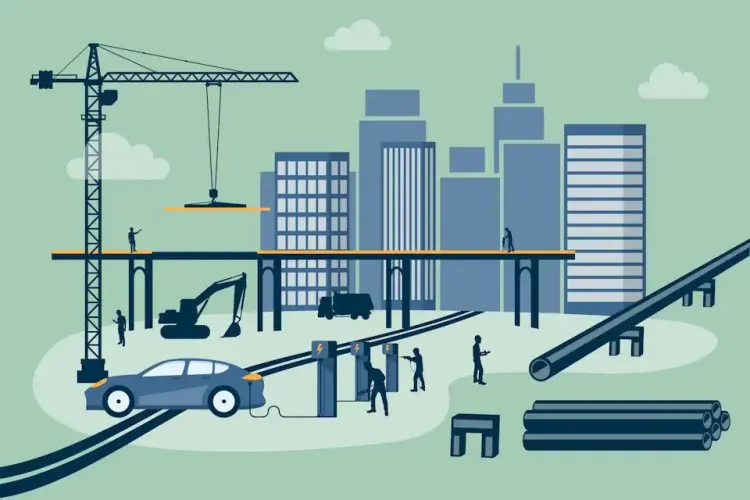$2.2 trillion investment in infrastructure to propel India to a $7 trillion economy by 2030

Mumbai, Dec 12 (NationPress) An estimated investment of $2.2 trillion in infrastructure development is essential to elevate India's GDP to $7 trillion by 2030, according to a report published on Thursday.
To realize this economic milestone, India's economy must grow at a CAGR of 10.1 percent from 2024-2030, as stated in the report by Knight Frank India.
The investment potential for private involvement in infrastructure development in India is projected to be between $103.2 billion and $324 billion.
“India is on the brink of a significant transformation in infrastructure development. By leveraging private investment, we can expedite our progress toward achieving our ambitious economic growth objectives,” remarked Rajeev Vijay, Executive Director-Government and Infrastructure Advisory, Knight Frank India.
The central government aims to cut its gross fiscal deficit to below 4.5 percent by 2025, and increasing private sector participation in infrastructure development would assist in meeting these fiscal deficit goals.
With the current investment distribution comprising the Centre (51.2 percent), state (44.1 percent), and private (4.7 percent), the projected gross fiscal deficit in 2030 is estimated at 4.7 percent, exceeding the government’s fiscal deficit limit.
In this context, private investment in infrastructure development in India is anticipated to reach $103.2 billion by 2030. However, the share of private investment within this mix is minimal and requires significant growth.
Moreover, a 10 percent increase in private investments in infrastructure to 14.7 percent raises the potential investment opportunity to $324 billion, averaging $54 billion annually until 2030.
This could effectively aid the government in maintaining favorable fiscal balances.
By enhancing private participation in infrastructure development, the government can allocate funds toward other vital areas of economic growth, such as public healthcare, human capital development, debt servicing, and more, thereby fostering long-term economic growth, the report suggests.
Sector-wise analysis reveals that renewable energy, data centers, roads and highways, warehousing, and logistics present substantial opportunities for private investments.
Bolstered by rapid urbanization and changing demographics, sectors like urban mass transit, airports, and power distribution also hold enormous investment potential, as mentioned in the report.
“For India to reach its ambitious economic growth targets, significant investments in infrastructure are indispensable,” the report concluded.






